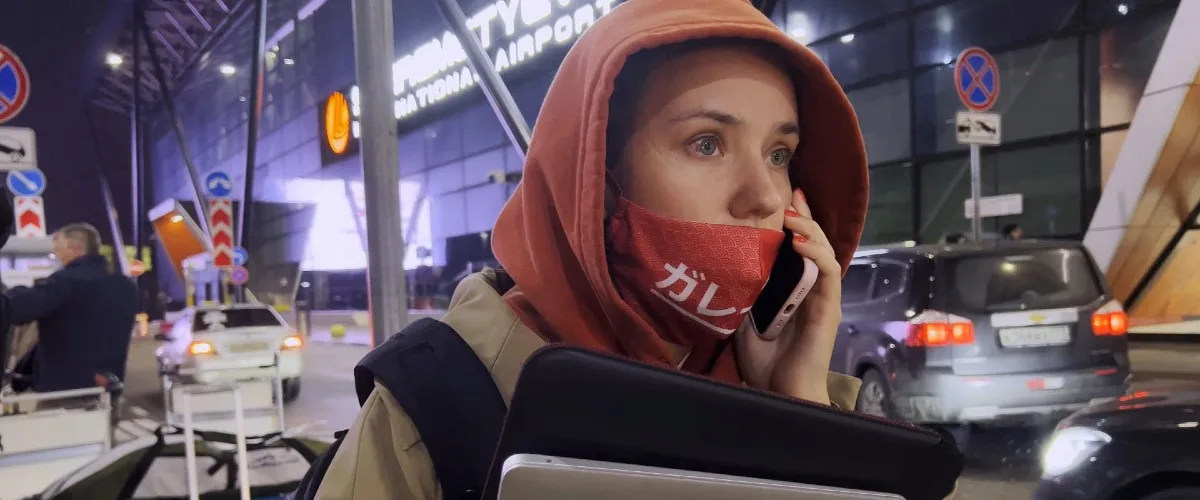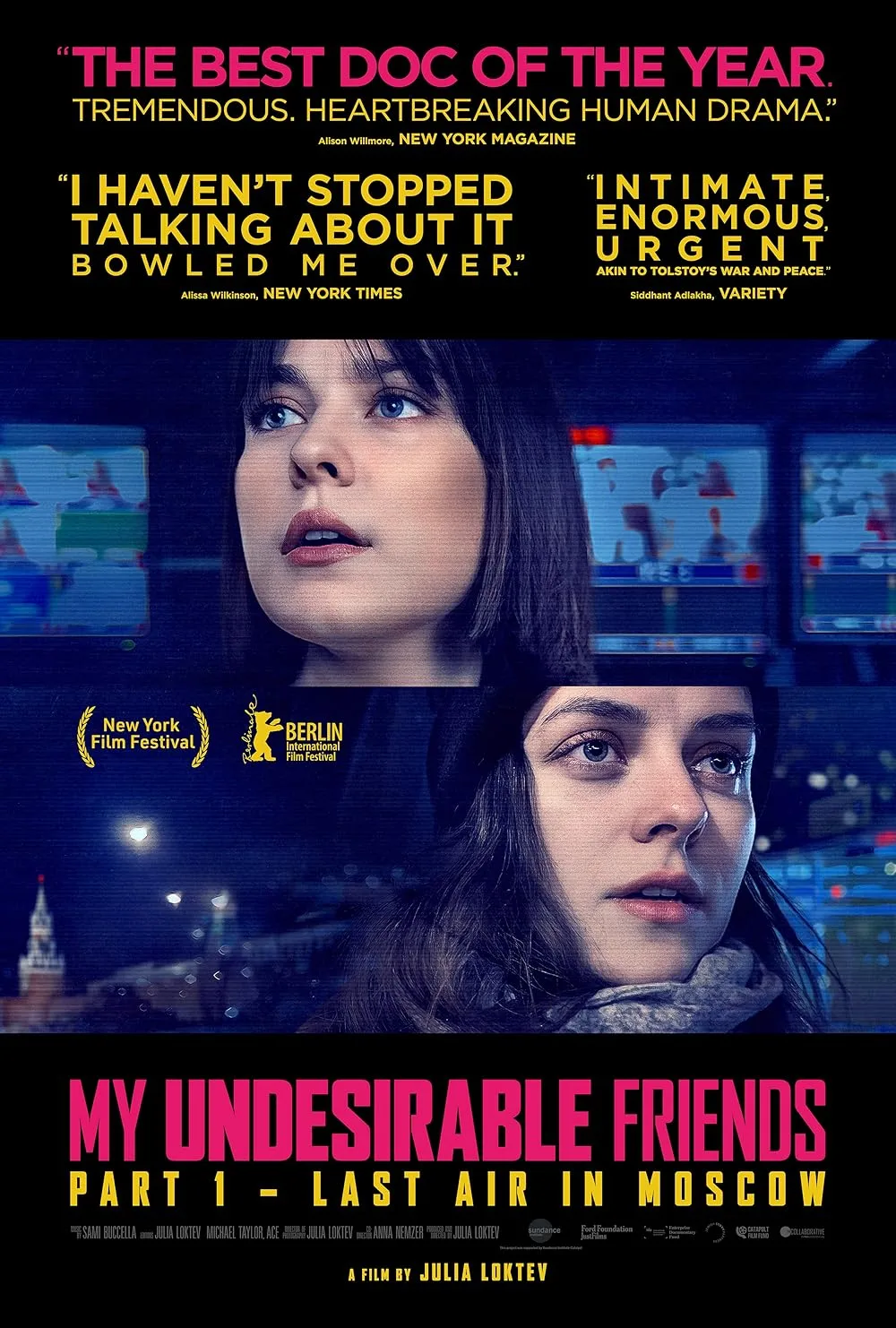“In Nazi Germany, people also sat and waited and hoped things would be OK.”
Julia Loktev had no idea she was going to record world history when she went to make a documentary about her journalist friends in Russia, and how they were forced to label themselves as foreign agents because of how they reported about Putin’s regime. There’s tension in the first hour of Loktev’s unforgettable “My Undesirable Friends: Part 1 – Last Air in Moscow,” but it’s mostly because we know what Julia’s friends only fear. We know how Putin would soon invade Ukraine, and how that war would lead his government to silence all opposition within his own country. Loktev’s intimate, powerful film is a profile of not only journalistic courage, but also what can happen when just reporting the facts is considered oppositional. It’s a chronicle of a country, and a world, marching backwards to fascism, and a warning to all who may follow in its footsteps.
Loktev breaks her film up into five chapters, currently playing at Film Forum in New York City, in roughly 3- and 2-hour chunks with an intermission in between. One of the many memorable elements of the first half—the break essentially comes with the invasion in February 2022—is the mundanity of imminent tyranny. We’ve been trained by fiction to believe that countries fall apart in waves, but it’s really more like small ripples moving across the water. “I mean, we can still go to the movies, enjoy life, do regular stuff, etc.,” says journalist Anna Nemzer, an employee at one of the country’s few non-propaganda outlets, TV Rain. “But at the same time, we’re all physically sick from all the news.” Amidst conversations about the state of Russia, we see a lot of “regular stuff,” such as Alesya and her girlfriend baking a cake. Life goes on. Even when life is falling apart.
For the first half, journalists like Ira and Ksyusha laugh about the new government-mandated requirements that they label everything they do as the product of a “foreign agent,” the event that brought Loktev to her home country in the first place. They’re unsure where to place the disclaimers. They even dress up like 007 characters for a photo shoot (that never saw the light of day) to poke fun at their agent status. They worry about what to say and how to say it, even when they’re just reporting on what’s happening. It’s a reminder that when journalists are forced to consider anything outside of the truth that narratives can be shaped.
For all five hours, Loktev’s camera is positioned close to her subjects, much like a friend in the same room, lending the project an intimacy and empathy that it would have otherwise lacked. And the length allows us to really get to know these people, feeling their frustration and their tension. It becomes our own. We don’t just see it. We feel it in our bones.
As their country marches toward a war that would alter the international landscape, “Last Air in Moscow” becomes a document of frustration as much as it is tyranny. It’s not about politics or propaganda as much as what a climate like Russia in the 2020s does to the people who live in it, especially journalists. Who’s going to see these reports? Who cares enough? Are people just screaming into the void? But how do you stop screaming?
It’s as much about that stressful inability to do anything impactful that so many of us feel around the world as it is a country in wartime. Anna pounds dough into bread just to release the anger, an anger that turns to fear and tears as these people realize they’re going to have to leave Russia or risk being arrested. Ksyusha, whose political prisoner fiancé has been behind bars throughout the film, is one of the most heartbreaking figures in documentary filmmaking in recent years, someone I’ll never forget.
Loktev’s careful approach lets the water rise to a boil slowly. We spend a lot of time with these people, listening to lengthy conversations about the state of the country and the world. It gives the project an intimacy that a more over-directed project would have lacked. The decision to take her time with these people and not rush from one major event to another gives Loktev’s film depth on a macro level, but it also hides what a deceptively brilliant filmmaker she is on a micro level. Where she places her camera, the news clips she chooses to include, how she gives her subjects space and grace—it’s all carefully considered.
In the midsection of “Last Air in Moscow,” Anna attends an event marking the closure of Memorial, a Russian human rights organization that was dissolved by the government just before the war in 2022. Their purpose wasn’t just to fight for human rights, but to document those of a country with a spotty record when it comes to human rights. Since this film opened in New York last week, President Trump publicly ripped into the Smithsonian, claiming that they were “…OUT OF CONTROL, where everything discussed is how horrible our Country is, how bad Slavery was, and how unaccomplished the downtrodden have been. Nothing about Success, nothing about Brightness, nothing about the Future.”
Putting aside political party differences or what you think the word woke means, a long-believed, unshakable truth has been that if we don’t learn from the mistakes of history, then we are doomed to repeat them. It’s been true forever. It becomes impossible when regimes try to actively destroy their past. It’s a stone on a path to a future that no one wants. We have seen so many documentaries about our past, but few have felt more like a warning about our future.




















